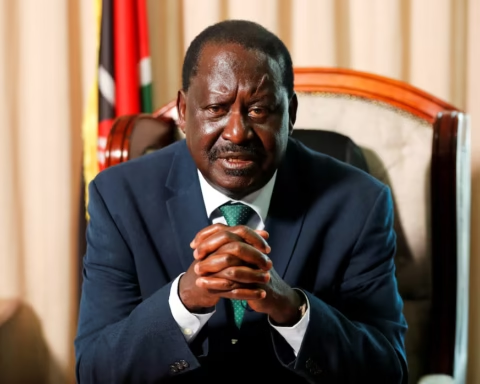In a decisive move to reform Nigeria’s fiscal landscape, President Bola Ahmed Tinubu has signed four key tax bills into law, marking a significant step in his administration’s commitment to economic restructuring and revenue expansion. The new laws, aimed at improving tax collection efficiency, encouraging investments, and closing loopholes in the existing system, are being hailed as both bold and necessary.
1. The National Tax Reform Act
2. The Value Added Tax (Amendment) Act
3. The Corporate Income Tax Simplification Act
4. The Digital Economy Tax Act
Speaking during a brief ceremony at the Presidential Villa, President Tinubu emphasized the importance of tax reforms in achieving Nigeria’s long-term development goals.
>These laws are a product of extensive consultations and expert input. They are designed to simplify our tax system, reduce burdens on honest taxpayers, and make it more difficult for evasion and corruption to thrive,” the President said.
He further noted that the digitalization of Nigeria’s economy and the growing tech sector made it imperative to update the tax framework to capture new forms of value creation and economic activity.
1. The National Tax Reform Act sets the stage for a unified tax administration system across federal and state levels. It introduces a streamlined tax database and establishes a Tax Reform Council to monitor and propose further reforms.
2. The VAT (Amendment) Act adjusts the VAT threshold for small businesses, increases compliance requirements for larger corporations, and grants more clarity on digital and cross-border services.
3. The Corporate Income Tax Simplification Act lowers the tax rate for small and medium enterprises (SMEs) while offering incentives for companies that invest in infrastructure, green energy, and job creation.
4. The Digital Economy Tax Act introduces a digital services tax aimed at multinational tech firms operating in Nigeria without a physical presence, ensuring they contribute their fair share to the national coffers.
The Nigerian business community has received the announcement with cautious optimism. The Manufacturers Association of Nigeria (MAN) welcomed the simplified tax processes, although they urged the government to ensure that implementation does not lead to multiple taxation or increased bureaucratic hurdles.
Tax policy experts praised the laws for closing loopholes and aligning Nigeria’s tax framework with global best practices.
>For years, Nigeria has lost billions in revenue due to outdated tax codes and weak enforcement. These new laws, if well-implemented, could change that,” said Professor Aisha Okonkwo, a fiscal policy analyst at the University of Lagos.
With these tax laws now signed, implementation becomes the next major challenge. The Federal Inland Revenue Service (FIRS) has pledged to ramp up its digital infrastructure and conduct widespread public awareness campaigns.
President Tinubu concluded his remarks by reaffirming his administration’s resolve to build a fair and productive economy:
These reforms are not about burdening Nigerians. They are about building a system where everyone contributes fairly, and everyone benefits from the nation’s prosperity.”
As Nigeria embarks on this new fiscal path, citizens and investors alike will be watching closely to see how these ambitious reforms play out in practice.
Follow us on all social media platforms @dailyquery for news and analyses around the globe.



























